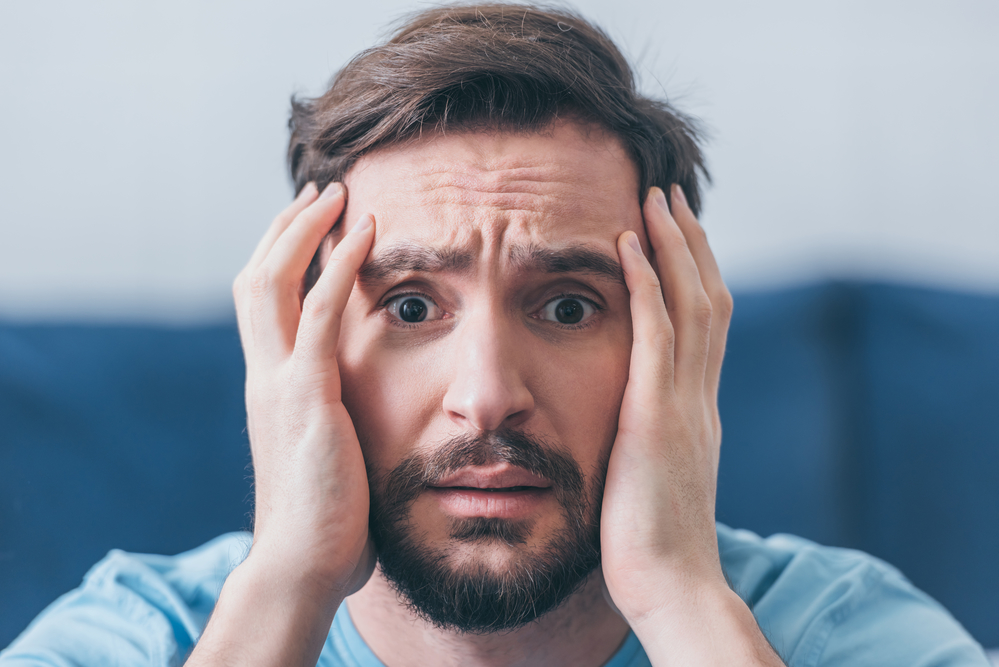Introduction
Defining Anxiety
Anxiety is a natural response to strain, characterized through feelings of fear, anxiousness, or worry. It is an necessary part of the body’s fight-or-flight reaction and can be useful in certain situations. However, while tension becomes chronic or overwhelming, it may intrude with each day activities and high-quality of lifestyles.
Importance and Relevance
Understanding tension is essential because of its incidence and impact on intellectual health. Anxiety disorders affect thousands and thousands of people international, making them one of the most commonplace intellectual fitness conditions. Recognizing the symptoms, causes, and treatments of tension can help individuals manage their symptoms and are looking for suitable care.
Types and Categories
Generalized Anxiety Disorder (GAD)
Generalized Anxiety Disorder includes immoderate, uncontrollable fear about diverse aspects of each day lifestyles. People with GAD frequently assume disaster and can fear excessively approximately health, cash, circle of relatives, or work.
Panic Disorder
Panic Disorder is characterised by using recurrent, surprising panic attacks. These assaults are surprising durations of extreme worry or soreness that top inside minutes and may include bodily symptoms like heart palpitations, sweating, and shortness of breath.
Social Anxiety Disorder (SAD)
Social Anxiety Disorder involves intense fear of social situations wherein one might be judged or scrutinized through others. This worry can significantly impact personal and expert existence.
Specific Phobias
Specific Phobias are intense, irrational fears of unique gadgets or situations, consisting of heights, animals, or flying. These fears can lead to avoidance behaviors and misery.
Obsessive-Compulsive Disorder (OCD)
Obsessive-Compulsive Disorder is characterised through chronic, undesirable mind (obsessions) and repetitive behaviors (compulsions). These behaviors are performed to reduce tension associated with the obsessions.
Post-Traumatic Stress Disorder (PTSD)
Post-Traumatic Stress Disorder can expand after experiencing or witnessing a annoying occasion. Symptoms consist of flashbacks, nightmares, intense anxiety, and uncontrollable thoughts about the event.

Emotional Symptoms
Feelings of dread or apprehension
Overthinking past occasions or potential destiny eventualities
Feeling crushed or out of control
Causes and Risk Factors
Biological Factors
Genetics: Family records of hysteria disorders can boom the threat.
Brain Chemistry: Imbalances in neurotransmitters along with serotonin and dopamine can make contributions to anxiety.
Medical Conditions: Chronic illnesses or great fitness problems can cause anxiety.
Environmental Factors
Traumatic Events: Experiencing or witnessing trauma can cause tension disorders.
Stressful Life Events: Major existence modifications including divorce, activity loss, or financial difficulties can motive anxiety.
Childhood Experiences: Early lifestyles strain or adversity, together with abuse or forget about, can growth vulnerability to tension.
Lifestyle Factors
Substance Use: Abuse of alcohol, capsules, or caffeine can exacerbate anxiety symptoms.
Poor Diet: Nutritional deficiencies or unhealthy consuming behavior can affect intellectual fitness.
Lack of Physical Activity: Regular workout allows lessen anxiety, and a sedentary way of life can growth it.
Diagnosis and Tests
Self-Assessment and Screening Tools
GAD-7 (Generalized Anxiety Disorder 7-object scale): A quick questionnaire to become aware of and examine the severity of GAD.
PHQ-nine (Patient Health Questionnaire-nine): While usually for depression, it could suggest tension-associated troubles.
Beck Anxiety Inventory (BAI): A 21-object scale measuring the severity of anxiety.
Professional Diagnosis
Clinical Interviews: A intellectual fitness professional conducts an in depth interview to apprehend the affected person’s records and symptoms.
Psychological Evaluation: Comprehensive checks that could include standardized assessments to diagnose anxiety problems.
Medical Tests
Physical Examination: To rule out bodily situations that could cause anxiety symptoms.
Blood Tests: To check for underlying scientific troubles like thyroid problems or nutrition deficiencies.
Treatment Options
Psychotherapy
Cognitive Behavioral Therapy (CBT)
CBT is a broadly-used therapy that enables individuals identify and alternate bad concept styles and behaviors. It is effective for various tension issues.
Exposure Therapy
Exposure Therapy involves gradually exposing individuals to feared conditions or objects to reduce avoidance behaviors and tension.
Acceptance and Commitment Therapy (ACT)
ACT encourages people to simply accept their mind and emotions instead of preventing them, and to decide to conduct modifications aligned with their values.
Medications
Antidepressants
Selective serotonin reuptake inhibitors (SSRIs) and serotonin-norepinephrine reuptake inhibitors (SNRIs) are typically prescribed for tension.
Benzodiazepines
These medicinal drugs are used for short-term relief of severe tension signs and symptoms however may be addiction-forming.
Beta-Blockers
Primarily used for coronary heart situations, beta-blockers can assist manage bodily symptoms of hysteria like rapid heartbeat.
Lifestyle Adjustments
Regular Exercise
Physical hobby can lessen anxiety by means of freeing endorphins and improving temper.
Healthy Diet
A balanced weight-reduction plan wealthy in fruits, greens, lean proteins, and entire grains supports usual mental fitness.
Sleep Hygiene
Maintaining a normal sleep time table and creating a restful environment can enhance sleep exceptional and decrease anxiety.
Alternative Therapies
Mindfulness and Meditation
Mindfulness practices and meditation can help people control stress and reduce anxiety.
Yoga and Tai Chi
These practices combine physical motion with breath manage and meditation, selling rest and mental clarity.
Herbal Remedies
Some humans locate remedy using natural supplements like valerian root, chamomile, and lavender.
Preventive Measures
Stress Management Techniques
Time management abilities
Relaxation strategies such as deep respiration, innovative muscle relaxation, and visualization
Healthy Lifestyle Choices
Regular physical hobby
Balanced eating regimen
Adequate sleep
Building Resilience
Developing sturdy social guide networks
Engaging in activities that construct shallowness and confidence
Personal Stories or Case Studies
John’s Journey with GAD
John, a 35-yr-old software program engineer, shares his enjoy with Generalized Anxiety Disorder. Despite his successful profession, John continuously worried approximately activity overall performance and private relationships. Through CBT and life-style modifications, he discovered to control his tension and enhance his best of existence.
Maria’s Battle with Social Anxiety
Maria, a college scholar, struggled with Social Anxiety Disorder. Her fear of social interactions impacted her instructional and social life. With the help of exposure remedy and help groups, Maria gradually overcame her fears and now actively participates in campus sports.
Expert Insights
Dr. Jane Smith on Anxiety Management
Dr. Jane Smith, a famend psychologist, emphasizes the significance of early intervention and a holistic technique to managing tension. She advocates for a aggregate of remedy, medicine, and life-style changes tailored to each person’s needs.
Dr. Robert Johnson at the Role of Medication
Dr. Robert Johnson, a psychiatrist, discusses the benefits and limitations of drugs in treating anxiety. He highlights the significance of monitoring and adjusting remedy plans to ensure top of the line outcomes.
Conclusion
Summary of Key Points
Anxiety is a commonplace but achievable situation with various types, signs, and reasons. Effective treatments encompass therapy, remedy, and lifestyle changes. Early intervention and a customised approach are crucial for a success management



